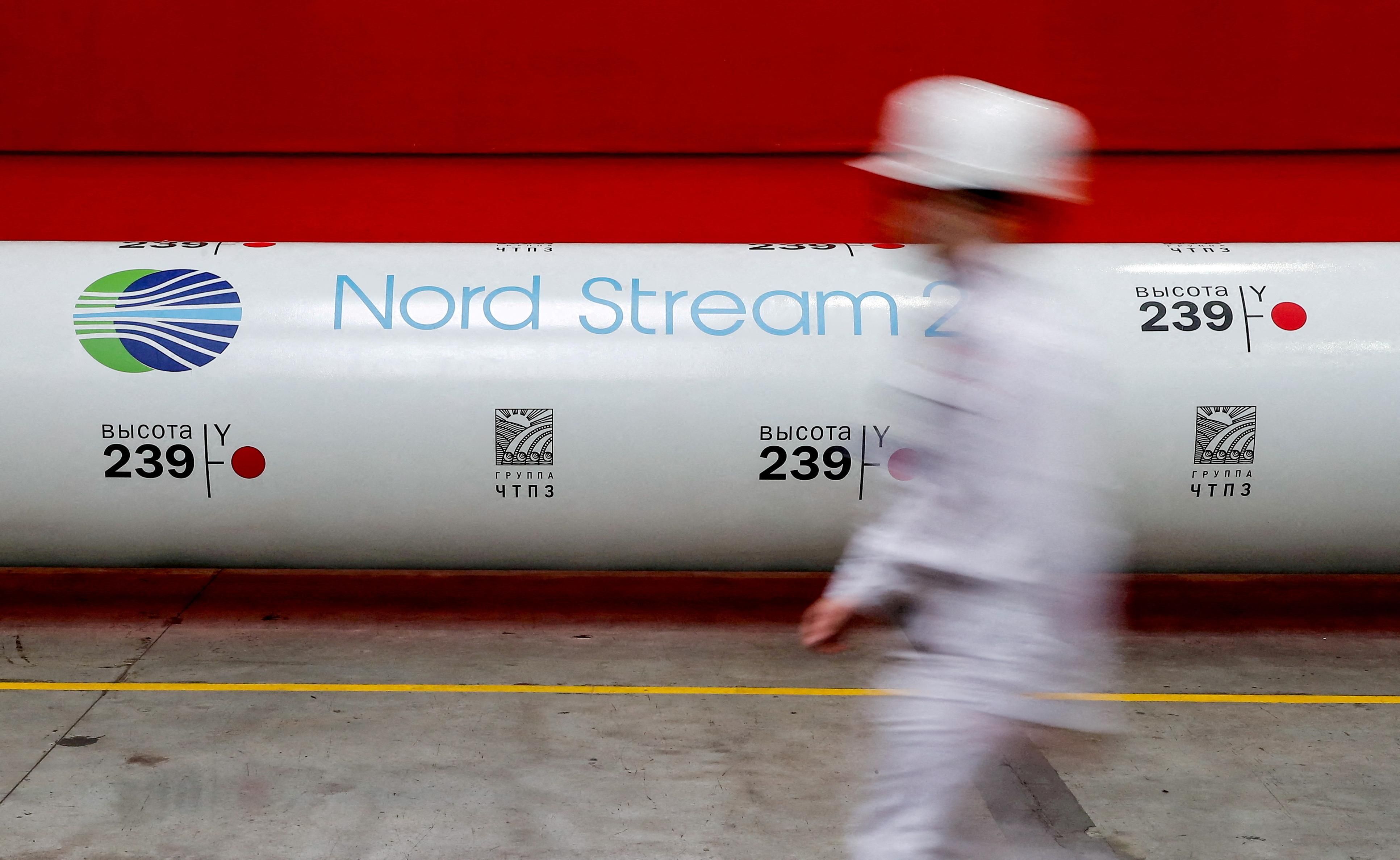News
January 27, 2022
Nord Stream 2 used as a bargaining chip with Russia. The US now says that if Russia invades Ukraine, it’ll block the Nord Stream 2 pipeline, which is set to transfer even more natural gas from Russia to Germany under the Baltic Sea. This is a big deal, considering that Germany – thirsty for more Russian gas – has long been pushing for the pipeline to start operating despite ongoing objections from Washington. The $11 billion energy project, which would double Russian gas exports to Germany, is seen as (a big) part of the reason why Berlin is reluctant to push back hard against the Kremlin over its troop buildup at the Ukrainian border. Still, German officials admit Nord Stream 2 could face sanctions if the Russians invade, suggesting that the Americans’ threat was likely coordinated with Berlin in advance. This comes amid ongoing diplomatic attempts to de-escalate the Ukraine crisis, with US President Joe Biden and German Chancellor Olaf Scholz set to meet at the White House on February 7.
Castro’s challenges in Honduras. Honduras on Thursday inaugurated its first female president. Xiomaro Castro is a 62-year-old democratic socialist and wife of former president José Manuel Zelaya, who was ousted in a military coup in 2009. But she assumes office in the middle of a dispute within her own party over congressional roles that could make it hard for her to pass legislation. Several international heavyweights flew in for the ceremony in one of Central America’s poorest countries. US Vice President Kamala Harris, who’s been charged with the very daunting task of addressing the root causes of migration to the US from the Northern Triangle, attended as a sign of solidarity. Meanwhile, Taiwan’s Vice President William Lai also flew into Tegucigalpa to shore up Taiwanese support for Honduras as it tries to challenge Beijing’s expanding influence across Latin America. (Castro previously said that she might cut off ties with Taipei to bolster economic cooperation with Beijing.)
Portuguese vote. Portugal goes to the polls on Sunday, more than three months after the president was forced to call a snap election over failure to pass the 2022 budget. The ruling center-left Socialist Party of PM António Costa is now slightly ahead in the polls of the Social Democrats, the main opposition center-right party. Meanwhile, the far-right Chega party could become the third-largest parliamentary force after benefiting from some Portuguese blaming leftist parties for forcing an election amid the pandemic. Costa has made it easy for Portuguese to vote early to avoid crowds amid the omicron wave, but turnout is still expected to be low. Whatever the outcome, it's unlikely either of the two main parties will win a majority of seats. This means one of them will need to abstain for the other to take power, or call a second election. That would be very bad news for Portugal, which has so far been one of the EU's most politically stable countries and one of the bloc's economic success stories since the euro and sovereign debt crisis almost a decade ago.
More For You
- YouTube
President Trump’s second term has rapidly reshaped global politics, with the US wielding power more aggressively, targeting weaker countries and even allies, Stephen Walt explains on GZERO World.
Most Popular
Russian President Vladimir Putin speaks during a news conference after a meeting of the State Council on youth policy in Moscow, Russia, on December 22, 2022.
Sputnik/Sergey Guneev/Pool via REUTERS
The Russian president said little when the US seized Venezuelan strongman Nicolás Maduro, an ally of Moscow. But there might be a reason for his silence.
Tractors drive on the N-403 towards Zafra during a rally on 16 January 2026 in Badajoz, Extremadura (Spain).
Photo by Javier Cintas/Europa Press/ABACAPRESS.COM
The US is criticizing a new EU trade deal with South America’s Mercosur bloc, saying it unfairly favors European farmers at the expense of American importers.
Think you know what's going on around the world? Here's your chance to prove it.
© 2025 GZERO Media. All Rights Reserved | A Eurasia Group media company.
